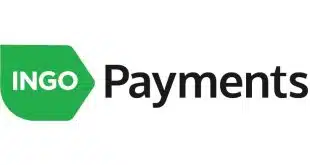Clear away the coin part, and what Bitcoin invented may very well be a better infrastructure for payments: the blockchain. The blockchain is a distributed ledger that logs and confirms transactions based on user consensus. To paraphrase Sarah Martin of the Digital Currency Council, blockchain is a distributed database and an accounting methodology that improves transaction speed, reduces counterparty risk, improves network durability, and can reduce the cost of transactions.
Through private-key encryption, a distributed-ledger system ensures the ownership of what is recorded in it. In being shared by and visible to all participants, who validate transactions by majority consensus, open-ledger systems can replace the central-site model with a centerless, all-to-all network. Since every node can reach every other node via several different routes, a transmission failure is very unlikely. The network is protected by its inherent topology.
It has taken time to extract the shared-ledger innovation from the original Bitcoin business model. The experiments going on today using shared-ledger technology are mostly focusing on the transfer of titles and other non-monetary uses. A distributed ledger can enable the relatively instant transfer between parties of titles, property, files (of anything), patents, and even mobile-phone minutes.
The Holy Grail of payment systems, to move the data with the money, is changed from a struggle to a built-in property of the value-transfer system. This ability to move payment and data as one may be the shared ledger’s sleeper advantage.
In the same way that a central-site network creates a natural monopoly, a distributed network builds in competition, as any node will always have, at minimum, at least two separate routes to get to any other node. A network pattern like this raises the question of governance (and there will be governance). Although the old model, in which the centralization of the network-engendered centralized governance no longer applies, one wonders how comfortable bankers and corporate treasurers are going to be with the idea of rule by consensus.
The list of more than 20 banks known to have joined up to explore the uses and implications of shared-ledger technology reads like a Who’s Who of banking, including Barclays, Goldman Sachs, HSBC, Morgan, State Street, Credit Suisse, BBVA, Royal Bank of Scotland, and Australia’s Commonwealth Bank. The Canadian Payments Association is exploring it as well. In addition to this group, Bank of New York Mellon, whose Innovation Center is located in Silicon Valley, is also expected to be looking seriously at blockchain approaches.
Given that these institutions are concentrated in eight major banking countries on four continents, it would be a good guess that international transactions will quite likely be on the table.
Out in rural Kansas, a former Silicon Valley engineer and a former Lehman Brothers banker who bought CDW, a small community bank, and who have already achieved instant domestic bank-to-bank payments with a system based on the debit rails, have work under way with the shared-ledger firm Ripple. One might expect them to develop a real-time international-payments capability. One can assume they started with buying a bank first as the fast track to regulatory approval for a series of planned innovations.
Meanwhile, at a major international accounting firm there is a group of what must be very self-interested CPAs who are looking at shared-ledger technology’s ability to perform, automate—or perhaps even obviate the need for—transaction auditing as it is done today.
Among the many thinkers who are exploring where the technology may be heading, William Mougayar blogged recently that since blockchain (shared-ledger) technology should be thought of not as a new form of transaction, but rather as a new kind of database, it is a paradigm change for computing, not just banking. Given how wedded to computers the banking industry is, this insight merits bankers’ attention. Laura Shin of Forbes has proposed the “The Internet of Value,” arguing that blockchain technology might be as much a disruptor as The Internet of Things is expected to become.
From its origins in Bitcoin—a world quite a few found strange, if not downright unsettling—blockchain technology seems to have moved into the sunlight. We’ll be watching closely to see its ultimate impact on the payments community.





